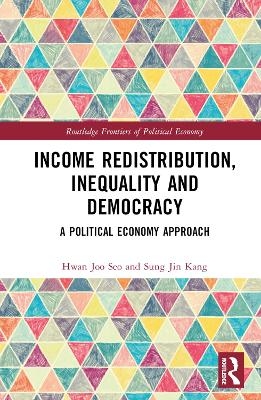
Income Redistribution, Inequality and Democracy
Routledge (Verlag)
978-1-032-69577-8 (ISBN)
This book examines why democracy has failed to deliver effective solutions to income inequality problems over the last four decades, and if democracy can offer solutions to various increases in inequality in the future. It also addresses what elements are necessary for democracy to serve as an effective alternative for addressing inequality issues.
Historical experiences over the past 40 years, including the global financial crisis, not only underscore the need for fresh perspectives on income inequality in economics but also question the ability of democracy to continue providing alternatives for addressing the escalating forms of inequality. Seo and Kang’s response to these inquiries diverge from conventional research in several significant ways. Primarily, what sets this research apart from existing studies is its intensified focus on income inequality as a product of the complex interplay between the political and economic domains, rather than a standalone examination of income inequality in isolation. Through a political economy perspective, this book argues that income inequality and income redistribution are shaped by the institutions, policies, and laws generated by the political system, with their formation and nature being determined by the power distribution among socio-political groups.
A useful resource not only to researchers who study political phenomena in the field of economics, but also to scholars who study economic phenomena in the field of politics. Furthermore, it will be particularly intriguing for policy makers concerned with issues of inequality and income redistribution.
Hwan Joo Seo is Professor at the Division of Business Administration at Hanyang University ERICA Campus, South Korea. He received his PhD in Economics at École des hautes études en sciences sociales in 1998. His research interests focus on the theory of régulation, income equality, and political economy. Sung Jin Kang is Professor in the Department of Economics at Korea University. He received PhD in Economics at Stanford University in 1999. Recently his research has focused on green finance, low carbon transition and global green trade, sustainable development, etc.
Contents
Chapter 1: Introduction
Chapter 2: The Cumulative Rise of Multiple Inequalities
Chapter 3: Can Democracy effectively mitigate the simultaneous rise of different forms of Inequality?
Chapter 4: Why has the M-R Hypothesis failed to materialize in Democratic Nations?
Chapter 5: Estimation Model Specifications and Results
Chapter 6: Conclusion
Index
| Erscheinungsdatum | 21.04.2024 |
|---|---|
| Reihe/Serie | Routledge Frontiers of Political Economy |
| Zusatzinfo | 11 Tables, black and white; 32 Line drawings, black and white; 7 Halftones, black and white; 39 Illustrations, black and white |
| Verlagsort | London |
| Sprache | englisch |
| Maße | 156 x 234 mm |
| Gewicht | 453 g |
| Themenwelt | Sozialwissenschaften ► Politik / Verwaltung ► Politische Systeme |
| Sozialwissenschaften ► Soziologie ► Makrosoziologie | |
| ISBN-10 | 1-032-69577-3 / 1032695773 |
| ISBN-13 | 978-1-032-69577-8 / 9781032695778 |
| Zustand | Neuware |
| Informationen gemäß Produktsicherheitsverordnung (GPSR) | |
| Haben Sie eine Frage zum Produkt? |
aus dem Bereich


